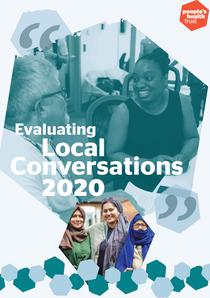Overview
Local Conversations responded to increasing inequalities and challenges by developing practical ways of bringing people together through a range of activities, events and projects.
This latest evaluation found increasing evidence that residents are building collective control, including emerging attempts to influence people, organisations and institutions in positions of power on broader issues. It also found the programme is engaging with a more diverse range of residents than in previous years.
Two other promising developments that demonstrate greater depth of engagement are increased levels of volunteering and increased independence of steering groups from lead organisations.
Analysis also found that to achieve the aims of the Local Conversations programmes they needed to: involve more diverse people in regular and active roles; continuing to try to influence people and organisations in positions of power; and, increase residents’ skills, training and capacity, especially on issues relating to leadership and governance.

Key findings
- 47% of Local Conversations report talking to their neighbours on most days;
- 81% of Local Conversations participants expressed a feeling of belonging within their neighbourhood;
- 81% of Local Conversations participants agreed that they could change the way their area was run.
About the evaluation
New Economics Foundation independently evaluated the Local Conversations programme’s theory of change and its impact from 2016 to 2021. This third year Local Conversations evaluation was published in August 2020.

